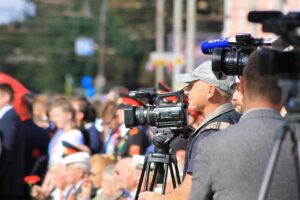How Athletes Prepare Before a Match

People often ask how athletes prepare before a match. Well, Athletes at all levels of the game spend endless hours of training and honing their skills for the best chance of performing well on game day. Optimizing in-game performance much depends on preparation.
The hours before a competition are key to an outstanding performance. Also, the night and day before the match are crucial for flawless preparation. Being “prepared” is multi-factorial in nature and should cover many aspects of the days leading up to the game. Leaving an area to chance can drastically affect your overall performance on the field.
Athletes require more mental preparation, endurance, and energy level than ever. Thanks to Biomax technology, red light therapy helps increase energy levels and boosts physical performance.
How Athletes Mentally Prepare Before a Match
Goal Setting
Studies have shown the type of goals set by athletes can affect the emotions surrounding their performance. Athletes often try to set performance goals rather than just outcome goals. And this prevents them from focusing on things over which they have only partial control. As a result, athletes are less likely to see decreased motivation or experience feelings of anxiety.
Attention
When the attention and responsiveness are optimal, the interpretation of competitive situations is precise, and the reflexes and mental activity are up to date. Athletes make their attention drive them, always with the measure of not getting too excited. For this reason, they identify the appropriate level of energy and enthusiasm to regain it at the time of competition.
Self-Confidence
When it comes to competition, self-confidence is a relevant factor. Athletes do anything that makes them feel prepared and knows how to dominate. Being aware that they are well prepared gives them confidence in any questions or uncertainties.
Self-Awareness
Athletes often fail when they let their emotions overcome them. However, developing self-awareness can eliminate this in some way. Self-awareness can be achieved by keeping an athlete journal. This allows athletes to identify emotions that improve or hinder their performance. With this advanced understanding, they are in a better position to ignore negative emotions and focus on positive emotions.
How Athletes Physically Prepare Before a Match
Warm-Up
The most effective rituals athletes follow is warm up. Warming up is a must to achieve an optimal state of activation of the body. One of the main benefits of warming up is to increase body temperature and increase the rate of nerve transmission. For doing this, joint mobility routines, strength and stability exercises, jumps, sport-specific exercises and short runs should be included in the training. The duration of the warm-up should be between 15 and 25 minutes, as too much can cause fatigue, and your performance in competition could be affected.
Light Therapy
Nowadays, athletes and sports professionals often rely on light therapy as part of their training and regular exercise. Light therapy helps boost athletic performance by decreasing muscle fatigue and growing endurance, as well as preventing or treating injuries at the first signs before the pain becomes persistent. With Platinum LED Biomax Series, the risk is minimal, and the potential is highest. They produce the highest amount of irradiance than any other LED therapy lamp, our most powerful. Other devices used for athletic performance, such as cryotherapy cameras, do not have the same consistent clinical results and can be quite dangerous.
Night Sleep
When someone asks how athletes prepare for a match, I must say they start the night before with a good night’s sleep. Research has shown that when athletes get enough sleep, their speed increases by 5%, and their shooting accuracy increases by 9%. These are big margins in sports where small differences can have a significant impact. Athletes who train for a competition need 10 hours of sleep per day to recharge their batteries and improve performance. Sleeping well the night before the game also helps get up early. Sometimes, taking a 20-minute nap a few hours before the game help boost energy.
Enough Nutrition
Nutrition is the athletes’ top priority for better endurance and energy. There is currently much debate in the relevant research areas about appropriate nutritional strategies for athletes. The truth is, there is no one size fits all approach. The main goal of good nutrition before any sporting event is to make sure you have enough reserves for your primary energy systems (carbohydrates and certain fats), to avoid gastrointestinal discomfort (excess gas, bloating, acid accumulation, frequent breaks in the bath and cramps) and that you are well hydrated before the game.
The foods people consume to achieve the above goals vary by age, experience, preferences, and even culture. Typically, the athletes increase carbohydrate intake a little 2-3 days before a game. Drink enough water to maintain a healthy state of hydration. Some athletes aim to eat one serving of lean protein at each meal for recovery.
In Conclusion
There are countless strategies athletes use to perform well in adverse conditions. And their mental and physical preparation comes first. Mental preparation ensures they are not someone who only promises in training but fails in competition. Athletes focus on physical preparation and nutrition for maximum stamina and physical ability.











